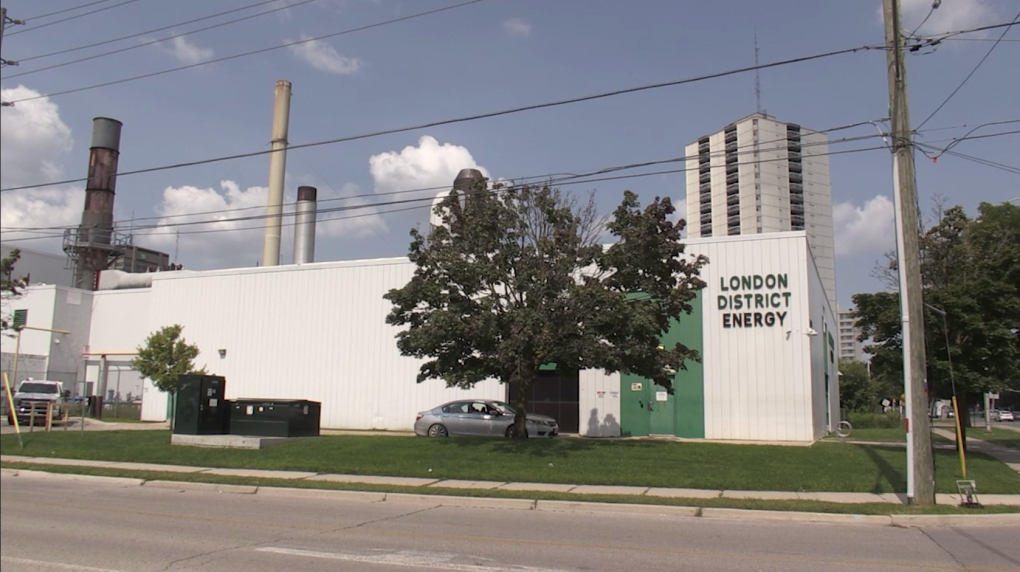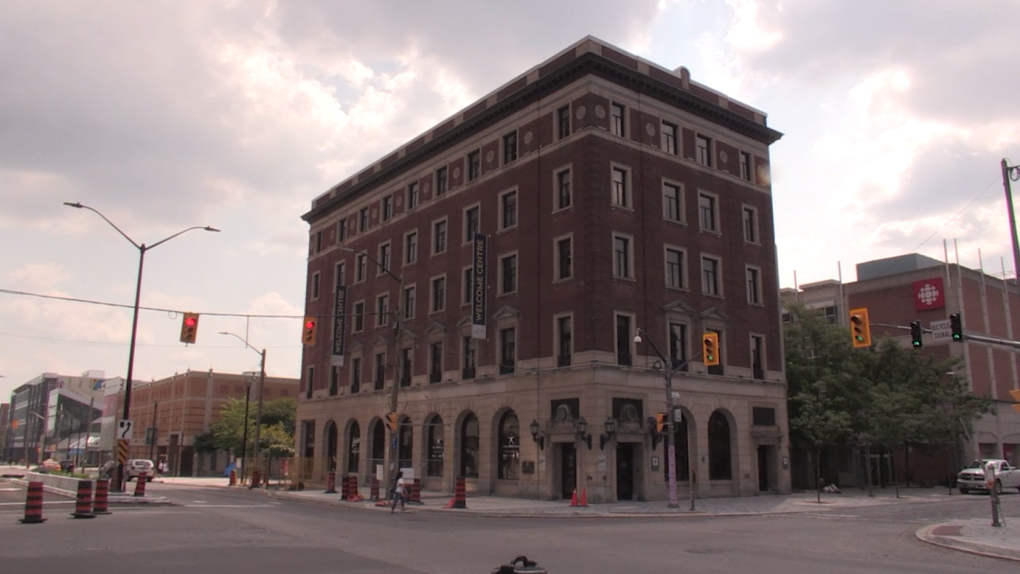Decommissioning district heating pipe leaves Grand Theatre and city council scrambling to install costly boilers
Taxpayers will be picking up the tab to install desperately needed boilers in a pair of downtown buildings after a sudden decision to shut down part of London’s district heating and cooling system.
Enwave Energy Corporation, the operator of the former London District Energy system on Colborne Street, notified customers of its low-pressure steam line that the service will end May 31, 2025.
The pipe is the primary source of heating and cooling for several downtown buildings including the J. Allyn Taylor Building (267 Dundas St.) and the Grand Theatre.
On Wednesday, representatives of the Grand told council’s Corporate Services Committee that Enwave had already shut off access to the pipe after a safety inspection and now intends to charge the theatre for operating a temporary system.
The temporary system is estimated to cost $250,000 to operate during the upcoming theatre season.
Since being notified in late May, leadership at the Grand has scrambled to source a new boiler system for their building which is estimated to cost at least $800,000 and is projected to take 14 weeks to install.
“Taking on an $800,000 debt in this point of our rebuilding [from the pandemic] would be crippling,” Executive Director Lyndee Hansen told councillors.
“We don't know if it's $800,000. We don't know if it's $900,000. We don't know if it's a million dollars,” he told councillors on the committee. “We really don't know right now. I know that's a wishy-washy answer, but we really don't. We just got into this weeks ago.”
Board Chair George Kerhoulas emphasized that the sudden disconnection was impossible for the theatre to anticipate.
The committee recommended contributing $400,000 from the Municipal Accommodation Tax (Hotel Tax) towards the Grand Theatre’s boiler installation, noting that the venue brings thousands of tourists into London each year.
“The Grand Theatre represents a real cornerstone in the foundation of the tourism success in our city,” said Deputy Mayor Shawn Lewis. “The Grand helps put heads in beds and actually generates municipal accommodation tax for us.”
Councillors didn’t need much convincing—they face a similar predicament.
The J. Allyn Taylor Building at the southwest corner of Dundas and Wellington houses Tourism London and other tenants.
Enwave Energy notified Civic Administration that the municipally owned building’s access to the same low-pressure steam system will end May 31, 2025.
 Enwave Energy Corporation’s London District Energy system on Colborne Street (Daryl Newcombe/CTV News London)
Enwave Energy Corporation’s London District Energy system on Colborne Street (Daryl Newcombe/CTV News London)
City Manager Sandra Datars Bere told the committee, “We got pretty much a year's notice that we needed to take an action and that the heat would not be there with the low [pressure] steam after that point in time.”
The notification left insufficient time for the city to conduct a competitive bidding process, design, and install a new heating and cooling system in the building.
Instead, civic administration recommends contracting the project to its current HVAC service provider at an estimated cost of $810,000.
The committee endorsed the plan to ensure the building doesn’t experience a loss of heating and cooling.
The discussion also shed light on an even greater financial risk that may be looming for taxpayers.
A medium pressure steam supply line operated by Enwave currently provides heating and cooling to City Hall, Centennial Hall, Museum London, RBC Place Convention Centre and Budweiser Gardens.
 The J. Allyn Taylor Building on Dundas Street (Daryl Newcombe/CTV News London)
The J. Allyn Taylor Building on Dundas Street (Daryl Newcombe/CTV News London)
“We have certainly asked our friends at Enwave what their intentions are [with the medium pressure system], and we've been told that they're assessing the entire system,” explained Lynda Stewart, Director of Fleet and Facilities.
The city has been a customer of the London District Energy system since 1992.
Given the importance of district energy systems to cities in Ontario, Mayor Josh Morgan will be speaking with other mayors about lobbying for greater provincial regulation and oversight of the district steam energy sector.
“This is the essentially the equivalent of a large utility ceasing to supply a needed service,” Morgan said.
He emphasized that the highly regulated system for electricity and natural gas distributors provides a much greater level of assurance for customers.
Council will consider both committee’s recommendations on August 27.
CTVNews.ca Top Stories

Canada Post strike: Talks deadlocked as sides clash on wages
Negotiations between Canada Post and the union representing its workers appear to be in a deadlock as the two sides remain far apart on wages and other issues.
Meta working on resolving Facebook, Instagram outage
Meta users are experiencing a widespread outage, including applications like WhatsApp, Instagram, Facebook and Facebook Messenger, according to third-party website Downdetector.com. Meta acknowledged the issue and is working on resolving the outage.
Bank of Canada drops key interest rate to 3.25%, Trump tariff threat 'new source of uncertainty'
Canada's central bank has cut its key rate for the fifth consecutive time – now sitting at 3.25 per cent – as the country's economy grows at a slower rate than projected.
'Baseball-sized hail': Toronto man owes car rental company $18K after hailstorm
A Toronto man is on the hook for about $18,000 after a car he rented over the summer was pelted by baseball-sized hail.
Police locate labyrinth of tunnels connecting tents to generator in Hamilton encampment
Hamilton police say that they discovered a series of “man-made holes and tunnels” during a patrol of a downtown encampment earlier this week.
Poilievre's Conservatives still in majority territory: Nanos seat projections
The Liberals' promise of a temporary GST break and $250 rebate cheques haven't benefited Prime Minister Justin Trudeau and his minority government when it comes to public support, according to Nanos Research data.
New Vancouver mom temporarily discharged from hospital to see Taylor Swift concert
A Vancouver woman didn’t let an emergency C-section keep her from Saturday’s Taylor Swift concert.
Manitoba nurse found not criminally responsible for killing parents has licence to practice suspended
A Manitoba nurse who was found not criminally responsible for killing his parents and attacking another nurse in a Winnipeg hospital has been suspended from practicing.
Trump chooses Kimberly Guilfoyle as his pick for Greece ambassador
U.S. president-elect Donald Trump on Tuesday named former Fox News personality Kimberly Guilfoyle as his pick to be the U.S. ambassador to Greece.































